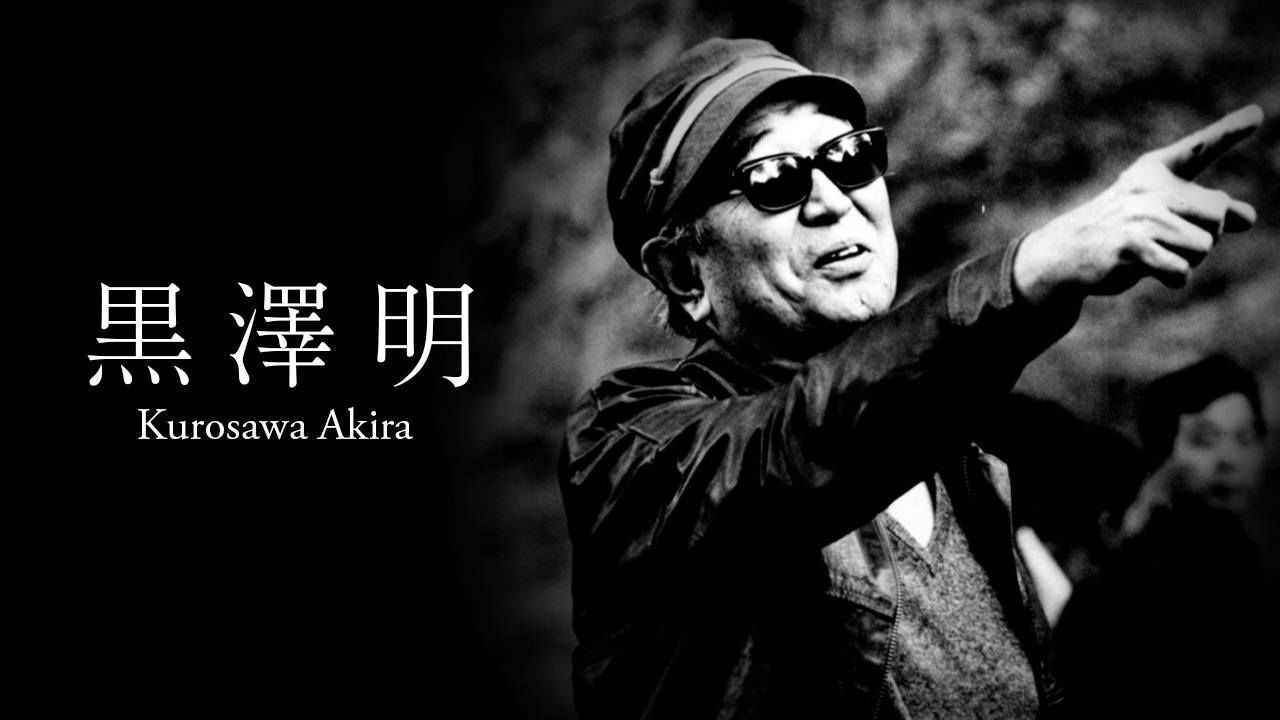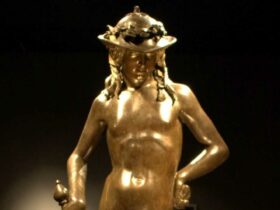Let’s find out together through this special, the top 10 of the best films of the famous director Akira Kurosawa. From The Seven Samurai up to Ran; let’s retrace some of the most famous films and themes made
At least once in a lifetime one cannot fail to mention the famous name of Akira Kurosawa. Japanese director and screenwriter, he is still considered one of the greatest revolutionary directors in the panorama of cinema history. He has a style in perfect balance between form, content and extreme directorial sensitivity; through his stories and his characteristic characters, he has been able to build a bridge between East and West; representing a source of esteem and inspiration for New Hollywood filmmakers such as Francis Ford Coppola, Martin Scorsese, Steven Spielberg e George Lucas.
Born in 1910, he has been able to collect a rich career and successful awards such as the Golden Lion for Lifetime Achievement at Venice Film Festival 1982 and the prize Lifetime Achievement Oscar in 1989.
Let’s find out together the top 10 of the best films and characters designed by director Akira Kurosawa.
10. Rashomon (1950) | the top 10 best movies of Akira Kurosawa
Our special on the best top 10 films directed by Akira Kurosawa; start with the great classic Rashomon from 1950. Based on the two stories by Ryūnosuke Akutagawa; represents the twelfth feature film directed by Akira Kurosawa, a work that consecrated the entry of Eastern cinema into the Western world.
A profound representation on the vision of reality and truth, through the broadest nuances of language and content. A project equipped with sounds and images, united through a characteristic and dominant use of editing, made to exalt and involve the viewer in the uncertainty of the facts. In fact, the story itself is built around an investigation into the heinous murder of a samurai and the rape of his wife at the hands of the bandit Tajômaru.
The film Rashomon dominated the 1951 Venice Film Festival, winning the Golden Lion award. Only a few months later, he also managed to conquer America, obtaining the Oscar for best foreign film.
9. Live (1952) | the top 10 best movies of Akira Kurosawa
Another blockbuster worthy of being mentioned in Akira Kurosawa’s top 10 best films; it’s the movie Living 1952. Set in Japan; Kurosawa shows us with great sensitivity and critical depth, the exploration and discovery of death; in a realistic and intense vision of the staging of human existentialism.
Through a fusion of language(1954) between noir and detective story; the film is inspired by the story of Leo Tolstoy The death of Ivan Ilyich. In a tale of post-war Japan, he moves his story to Kanji Watanabe’s (Takashi Shimura) last weeks. Learned of an incurable sea; he walks his last moments arm in arm with death, discovering in an existential balance sheet in the scene of the existential balance sheet colors and sensations that have always been kept hidden.
8. The Seven Samurai (1954) | the top 10 best movies of Akira Kurosawa
Among the absolute and epic masterpieces directed by Akira Kurosawa, The Seven Samurai of the 1954 deserves an honorable mention in the top 10 absolute masterpieces. An ambitious work, it still represents a cornerstone of the history of cinema today, consecrating Kurosawa on the international scene.
Supremacy and the desire for power in the vicissitudes of an era now lost in time. The revolution in history and on film, through the events of sixteenth-century Japan. Seven mercenary samurai are hired to defend a village from the looting of a band of criminals. Equipped with a careful characterization of the characters, sound and staging, in a perfect contemporary framework.
The film won the Leone d’Argento in Venice thanks to an amazing performance by Toshiro Mifune; was the subject of the western remake directed by John Sturges, The Magnificent Seven.
7. Throne of Blood (1957)| the top 10 best movies of Akira Kurosawa
A rearrangement of the Shakespearean Macbeth in 16th-century Japan. Protagonist Taketoki Washizu (played by the affectionate fetish actor, Toshirò Mifune), in the role of a noble thirsty for power and blinded by his own ambition. Destined for glory, a tremendous massacre will fall in his path. Followed by the face of the cold, lethal Lady MacBeth (played by Isuzu Yamada); a revenge consumed in a poignant and evocative vision. A penetrating look into an ongoing conflict between reality and fantasy, about betrayal and loyalty.
Film tribute to his training tradition; Throne of Blood (1957) is included in the list of films in competition in Europe at the Venice Film Festival.
6. The Hidden Fortress (1958)| the top 10 best movies of Akira Kurosawa
In the top 10 of the best titles, The hidden fortress of 1958. Film on the road; still sees the inimitable protagonist Toshiro Mifune. Belonging to filone jidai-geki, or the stories of samurai in the Tokugawa era; Akira Kurosawa creates a new and detached project from previous films. The story of the very young princess Yuki (Misa Uehara), fleeing into enemy territories after a defeat and the death of her father, escorted by General Rokurota Makabe (Toshiro Mifune).
Top film in Akira Kurosawa’s filmography, in its desire for disengagement and lightness in the story, it manages to surprise the viewer through light and ironic moments, with a dynamic use of the camera. Packed with critical insights and musings towards rigor and honor in a colorful way; manages to give viewers curated sequences with a high visual impact.
Awarded to Berlin Film Festival; The Hidden Fortress is a primary influence on George Lucas’ Star Wars saga.
5. The Challenge of the Samurai (1961) | the top 10 best movies of Akira Kurosawa
Another great masterpiece worthy of entering the top 10 is the film The challenge of the samurai (1961). Film that gave birth to the great genre spaghetti-western; contains an extraordinary work capable of involving the viewer in every detail. A work full of great visual suggestions, Akira Kurosawa brings to the screen a story destined to become iconic in the collective cinematic imagination, touching directors of the caliber of Sergio Leone.
The story takes shape in the 17th century. The protagonist is a wandering samurai who arrives in a village bloodied by the war between two clans. With Machiavellian strategy, he becomes the tip of the balance by pitting one against the other.
A film surrounded by the perfect balance between action, drama and comedy, enriched by suspense and innovative narrative junctions, in a marked propensity for the picaresque epic. Presented in competition at the Venice Film Festival, with Toshirō Mifune winner of the prestigious Volpi Cup as best actor.
4. Anatomy of a Kidnapping (1963) | the top 10 best movies of Akira Kurosawa
Anatomy of a 1963 kidnapping represents for the well-known director Akira Kurosawa, another example of the use of the noir genre contaminated by variegated elements; with the aim of creating a unique and multifaceted language. Based on a novel by Evan Hunter aka Ed McBain; a fluid and intriguing film, with a constant analysis of ethics and morals.
Split in the middle, the story centers on a shoe company executive who becomes the victim of extortion when his chauffeur’s son is kidnapped and held for ransom. A journey into evil and dirty American society full of vices; highlighted in the use of red, as an intrusive spot in the black and white painting.
3. The Little Man of the Great Plains (1975) | the top 10 best movies of Akira Kurosawa
Watershed film in Akira Kurosawa’s career; The little man of the great plains 1975, is the most heartfelt film of the director’s career. Conceived after the strong existential crisis that brought him one step away from death with attempted suicide; represents a perfect film transposition of a real poem.
A heartfelt praise to the beauty of nature and its bond with the human being. Shot in a language other than Japanese, it was inspired by readings of the biographical texts of the Russian explorer Vladimir Arsen’ev. For the first time set outside the Eastern world; in a wild Russia, the strong friendship between a topographer of the imperial army and a nomad from Siberia takes hold. A unique story lived in the river of visual emotions, combined with the magic of nature in splendid and wild places; still untouched by human ferocity.
Winner of the second Academy Award for best foreign film, it still stands out today for its emotional visual impact aimed at indissolubly unifying different cultures, visions and races.
2. Ran (1985) | the top 10 best movies of Akira Kurosawa
Another impressive film suggested in the top 10 best films by Akira KurosawaAnd Ran from 1985. Readjustment dell’Shakespearean work Of Re Lear set in feudal Japan. The protagonist is the sovereign Hidetora Ichimonji, next in the subdivision of his kingdom among the three princes sons of him. Eager to maintain the acquired power, two of the elders decide to disown their father; falling inexorably towards the abyss of madness.
Deep soul reading in a powerful way, with a care of the image in its sequential, perfect and sinuous composition. As in a perfect and calculated geometric picture; Shakespearean tragedy writhes in three hours of expressed beauty, in a painful portrait of human folly. Oscar-winning film in the category of best costumes, it was also worth the only nomination in the category of best director.
1 Dreams (1990) | the top 10 best movies of Akira Kurosawa
In the top 10 best films, we conclude our journey with film, Dreams of the 1990. Director Akira Kurosawa’s latest film, is seen as a final testament at the end of his career. A background of reflection towards the new generations, trapped in a world in total decay.
The complex and deep storylines experienced through eight episodes. A abstract yet tangible description of Kurosawa; linked to the waving dream vision in a constant search for balance. With images that turn into a desperate appeal not to remain unheard. Akira Kurosawa imagines the apocalypse, meeting demonic and deformed presences in a wounded Japan.
Conclusions
These were some of the best, most important and impactful films of the film career…
















Leave a Reply
View Comments